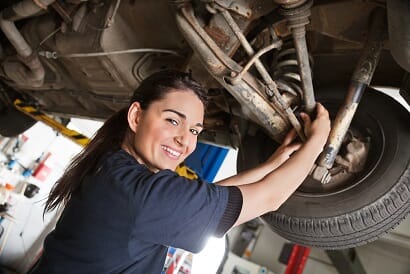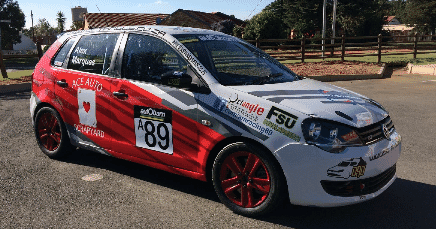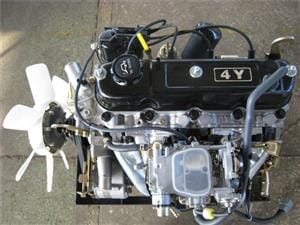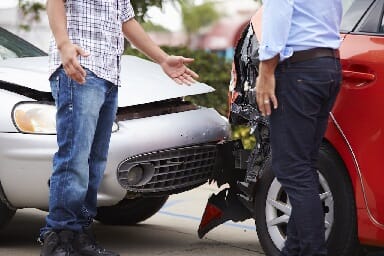- New Parts
- Used Parts
- Vehicles
- About
By Alex Marques on
2017 is upon us and after the sale of our Mk1 Golf, pre-season was all about completing the new VW Polo Race car.
We had only 7 weeks to start and complete the car before the first race which meant many late nights, hundreds of phone calls and lots of driving around to get the correct parts. We cannot explain how tired we were day after day and night after night but we made the deadline!
These are the results
Firstly, a big thank you to my dad for helping with this build it's been a crazy month and a half starting from just a shell to getting it complete, all the late nights and long days have paid off. Thank you to my friends, family and fiancé for being so understanding of the many missed birthdays and outings to get the car complete.
Then to my sponsors, thank you for all your contributions without all of you we wouldn't be nowhere near complete.
A big thank you to Ace Auto Scrapyard for their massive contribution and endless supply of parts you had in your yard.
A big shout out to Wikus, Ashley, Barnie and the rest of the guys at Delarey Racing Developments and Goldwagen Delarey you guys put your heart and souls into the engine bay and it came out better then we could have ever imagined. Thank you for answering literally hundreds of questions and phone calls.
Thank you to FSU Developments for the awesome products once again, I can't wait to see the final product you have planned for the interior.
Rion and Andre Octangle Marketing & Signage have really transformed the appearance of the car thank you for helping with the idea and stepping it up a couple of levels, I can't stop staring at the car!
Fuchs Lubricants South Africa thank you for the continued and greater support in 2017! We going to smash this one!
Alex Marques
Team Principal/Driver
By Funeka Mayoyo on
When it comes to purchasing an engine or gearbox, the secret to buying a good quality second hand engine or gearbox not only lies in how well you do your research and knowing exactly what you are looking for.
There are a large number of advantages one can gain from purchasing a second hand engine and or gearbox, such as…
- Second hand engines are always reliable as they are always almost original items. Considering that original parts are always a perfect fit, and are designed to last for years when maintained properly.
- Whether we realise it or not second hand engines and gearboxes when bought actually help with keeping our environment in impeccable conditions. As it’s another form of recycling known as upcycling.
- Second hand engines and gearboxes are cheaper when compared to new engines or gearboxes. Another excellent way you can save money when looking to get your car up and running.
Always consider a few of our pointers when purchasing a second hand engine or gearbox:
- Always check the history of the second hand engine or gearbox e.g. mileage, model and service history. In our case at ACE AUTO SCRAPYARD, all our vehicles are insurance accident damaged and come with a full service history.
- When going to inspect the engine or gearbox make sure all the parts of the engine or gearbox are intact and are in good working condition.
- Always check the guarantee of your engine or gearbox when you purchase it.
- Lastly, remember to run a full service on the engine and or gearbox you buy, yearly to ensure a longer and healthier life engine and gearbox.
Ultimately, it’s all about doing your research and not rushing into making any hasty decisions. Find out as much as you can about who you are planning to buy from. Other than that, second hand engines and gearbox’s could be the best thing you buy since sliced bread.
By Ace Auto on
Modern day cars are usually very reliable but, even so, they can still develop issues from time to time. The first sign of trouble is usually a strange noise you’ve not heard of before. Those squeaks, rattles and knocks all mean something, you just have to be able to interpret them.
Here’s a quick guide to the most common noises to help you to better understand what your car is trying to tell you. The most important thing to remember is – don’t ignore that sound, whatever it is. It will only get worse, and the louder it gets, the more urgent the need for attention.
- Chirping or squealing noise when you accelerate
This is usually a loose, slipping belt, most likely the drive belt. This transfers power from the engine to areas such as the aircon, power steering and alternator. Over time, it can wear down and slip, hence the squealing sound.
- Noise from the front tyres when steering
This may indicate bearings that need to be replaced, or that there is steering linkage wear.
- Squealing sound when you brake
This is a pretty good indication that your brake pads are worn and need to be replaced. If it’s making a grinding noise, then you need to see your mechanic urgently as the pads are probably worn clear through, and this might mean that your rotors probably need replacing too.
- Loud roaring from beneath the car
If it sounds like you’re flying a plane rather than driving a car, your muffler in all likelihood has a hole in it and will need to be replaced. If the whole exhaust has to be replaced, consider getting a stainless steel exhaust, which is less likely to rust and wear-and-tear won’t happen as fast.
- Soft clicking noise from the engine
Your oil reservoir is trying to tell you it needs some TLC. This indicates that you are low on oil. If you replenish it and it’s still clicking, you likely have a leak or a blockage somewhere. Or it could be a valve train that needs adjusting. Either way a trip to the workshop is in order.
- Hissing noise from the engine
This is the sound of something leaking from the engine and making contact with the hot engine, hence the hissing. It could be oil, coolant or transmission fluid.
Your car will communicate with you when it’s in trouble, either with warning signs or the above noises. Be sure to keep an ear open when you drive and if you hear any of these noises, don’t delay in getting it checked out. Leaving it for too long will likely lead to even worse problems!
By Ace Auto on
Have you ever been the first to arrive at an accident scene or been in one yourself? It can be overwhelming and stressful, which causes you to make silly mistakes or not follow the right process, so here are five easy-to-remember Do’s and Don’ts so that you do things right, without making yourself liable for a lawsuit at a later date.
Do – Stop and Help
If you are the first to arrive at the scene of an accident and can help, do everything you can to assist, until the police can get there. If anyone is injured on the scene, get professional help immediately by calling the police on 10111 and giving them the location of the accident. If your car is involved in the accident, you need to stop immediately. If you don’t, you’re committing a crime and can face a fine of up to R180 000 or nine years in jail, or both.
Do – Get all information
If you’re involved in the accident, be sure to get all information from the other person you have collided with. This includes the driver’s full name, ID number, address, telephone numbers and vehicle registration number. Also, try to get the name and contact details of at least one witness who saw the accident happen, if possible. This will help you later if the circumstances are contested, i.e., which driver was at fault. Be sure to take pictures of the vehicles from all sides before they are moved.
Do – Report the accident
Even if no one was hurt, you are still legally required to report the accident within 24 hours to your nearest police station. You will need to give your name, address, show your driver’s licence and the police will file an accident report.
Don’t – Interfere/Tamper with evidence
If someone has been injured in the accident, the vehicles may not be moved until the police give permission. If they are blocking the road, they can only be moved after their position has been marked in the road with spray paint or similar. If the vehicles are moved beforehand, it can be seen as evidence tampering and could ultimately get you into a lot of trouble.
Don’t – Get into an argument
If you are involved in an accident, the important thing is to stay calm. It won’t help to get into a fight with the other driver, even if they’re in the wrong. This could quickly escalate and make things worse. Take a deep breath, get all their details for insurance purposes and live to drive another day! If it looks like they’re going to leave the scene without giving you their details, be sure to take note of their registration number so you can report it to the police.
These Do’s and Don’ts are sure to prepare you for when the unexpected accident happens. You will know exactly what to do and how to react, and be less stressed.
By Ace Auto on
All cars need to be serviced regularly. But car maintenance costs are always going up. After all, garages and workshops are businesses and have to turn a profit. So what are your options? One of the biggest costs of servicing are the standard car parts like belts, filters, side mirrors, etc that must be replaced regularly to keep your car running smoothly. Garages and workshops all mark these items up. Mark-ups can vary, but the average rate is a whopping 30%. One of the easiest ways to save is by purchasing these parts yourself and doing the work yourself or having a car-savvy friend do it for you.
Knowledge is power
Women, in particular, can be taken advantage of by dishonest workshops or mechanics. But thanks to information available on the Internet, it’s much easier to get a good understanding of what you should be paying for parts. With the help of a friend who knows cars, you can find out what you should be paying, and save a great deal of money on servicing and repairs.
If you’re researching parts for your vehicle, the key thing is the VIN number – a 17-digit alfa numeric code that identifies every component of the vehicle, you can find the VIN number on your licence disk. This will ensure that everything from trim to engine, gearbox, tyres, etc, will be specific to your model vehicle and with all the variations on the market this makes part identification both easier and more precise.
DIY part sourcing now much easier
One option available to you is to compile a list of the parts you need for your service and/or repair and then purchase them yourself. If you’ve damaged a part of your car in a fender bender, getting the part you need from a reputable online resource can lead to substantial savings. Because who has time to go searching through scrapyards for the right part? There are far easier ways to get what you need.
Get what you need online
Like most things, car parts – both used and new – can now be purchased online. Most online retailers offer very low prices as they do not have the overheads of brick and mortar stores. You can also browse and compare prices and even get the parts you need as time and budget allows. Alternatively, if you have a sideline business repairing and or servicing cars, or are an enthusiastic DIYer, you can save a lot by ordering essential items like lubricants and wipers in bulk.






.jpg)
